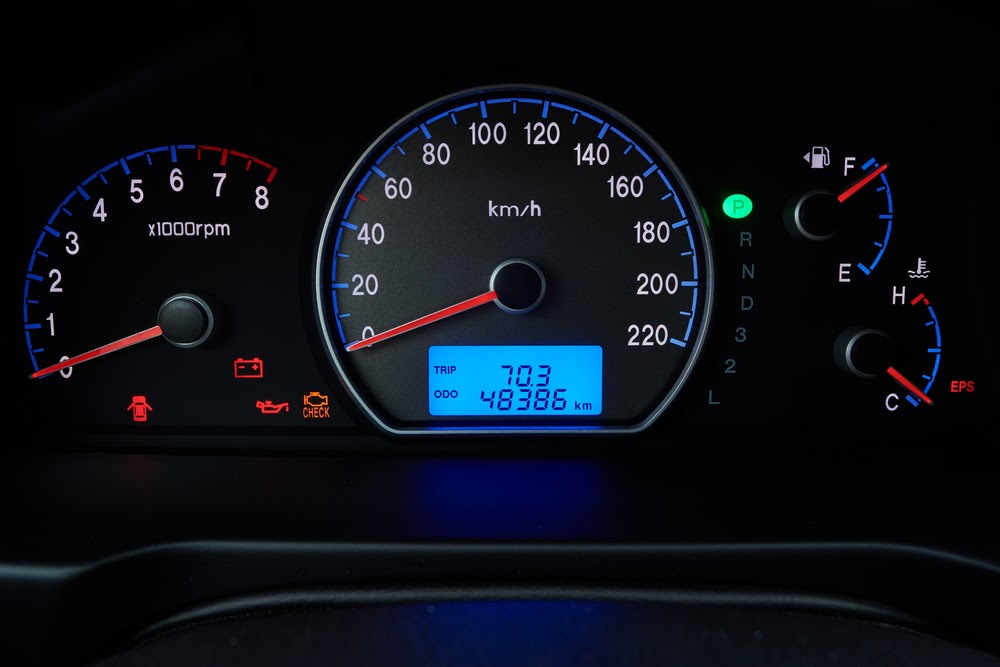What is the Best Mileage for a Used Car?
Shopping for a used car could require a bit more online research. Buyers might know the make and model they want, but they might need a specific price to fit their budget. They may need to look at the age of the vehicles, and used cars also can vary in the number of miles on their odometer. Price could differ because of mileage, age and condition, too.
Of all these factors, though, mileage might be the most perplexing. What is the best mileage for a used car? Is there a mileage that buyers should absolutely avoid? Here’s how to decipher the numbers on the odometer!

Why Mileage Affects Price
When shopping for a used vehicle, a number of factors affect the price: make/model, age, mileage and condition. Older vehicles may be less expensive than newer models, but this isn’t always the case. For example, an older luxury car might be more expensive than a newer economical vehicle.
Cars with damage or less than stellar interiors also may offer a lower price. There could be rips or other issues related to the overall appearance of the car. For obvious reasons, this doesn’t bode well for the value of the vehicle. Thus, the dealership will likely slice that price tag.
Make and model also affects the price of used inventory for obvious reasons. Again, a luxury vehicle is going to be priced higher than a standard model. A minivan that is the same age as a compact car will typically be more expensive, too.
Mileage is the final factor that can decrease or increase the sticker price. Why is mileage such an issue? Higher mileage means more wear and tear. As the mileage increases, the maintenance issues may also increase. When cars hit 100,000 miles, for example, there are a number of mechanical services that may be necessary.
Drivers might consider the 100,000 mile marker as the car’s middle age. Car and Driver explains that today’s cars will drive up to 200,000 miles. Buying a car with six digits is a significant odometer reading, but is it a deal breaker? That really depends on the buyer.
Best Mileage on a Used Car for a Commuter
Buyers will often turn to the used market to find a vehicle that’s more affordable. Some buyers don’t even consider a new model, because of the issues related to depreciation. For these buyers, used inventory is the better option.
While a number of factors affect the price of a used car, buyers may zero in on the odometer when all other factors are equal. For commuters, choosing a used model that offers the lowest mileage might be ideal.
What is the best mileage for a used car if the buyer needs that vehicle for a lengthy commute? The answer isn’t simple, because the buyer really needs to weigh the options of price and mileage and also understand how long they wish to keep that car.
If the buyer is financing the car for three years, they will need to figure out if the car will even last that long. For example, if the car buyer commutes 100 miles round trip five days per week, they will drive about 2,000 miles per month or 24,000 miles each year.
If the odometer of the used model is resting at 100,000 miles, that means the vehicle will rack up at least 60,000 miles over the life of the loan. While a vehicle could last up to 200,000 miles, there is no guarantee that it will last that long.
Driving a car an extensive amount each day adds wear and tear on the vehicle. While every used vehicle should come with a report on its previous ownership and history, the buyer doesn’t know the driving habits of the previous owner. Did they commute daily? Did they service the vehicle regularly?
For commuters who are buying a used vehicle, the mileage is important. Unfortunately, the mileage might not be the only consideration for the buyer. Price could impact what they choose, too.
For this reason, one recommendation for a driver who needs a used car for a commute is to choose the model with the lowest mileage that fits within their budget. Buyers also can research safety ratings for different models via the Insurance Institute for Highway Safety to find their safest models.
Best Mileage on a Used Car for City Drivers
City drivers are those who drive locally. These drivers may work near their home, or they may be retired or stay-at-home parents who don’t need to travel far during their daily routines.
When buying a used car for local driving, does mileage matter? The odometer reading may still be a factor to consider, but it may matter less to city drivers than to those who have long commutes.
Buyers still need to consider how long they plan to keep the vehicle. They also need to look at their budget needs and how this weighs against the odometer reading.
If buyers are driving 10 miles a day on average, the mileage isn’t going to become such an issue. However, if buyers also plan to use the vehicle for road trips or more extensive travel, then mileage on a used model could be more of a factor.
Like commuters, though, city drivers might look at both price and mileage and weigh their options accordingly.

Finding the Best Used Car
For many used car buyers, mileage will play into their final decision but so will price. Unlike new inventory, there are a number of factors that buyers will need to consider when purchasing a used vehicle.
Some buyers can have their heart set on a specific make/model. Maybe they have a preference related to the type of car they drive. When searching for used models, though, sometimes the choices even with a single model can be really overwhelming. Prices can vary considerably.
How do buyers sift through all their options? When shopping is used, buyers should understand where they are willing to compromise and where they will not budge. Some buyers might be willing to opt for an older model if it offers lower mileage. Other buyers might hunt for the newest models and not care about the mileage.
Price and the budget may play into this decision, too. If buyers must have a low price, they will need to compromise in some areas. Again, buyers may find lower prices for cars that are older or that have higher mileage.
However, lower prices also could be associated with economic models, too. Are buyers willing to sacrifice the model they want for a budget option? Would they rather choose an older luxury model than a budget-friendly newer economic vehicle?
What about safety features? Newer models will typically offer better safety features. Do buyers want a backup camera or more modern capabilities? These are considerations buyers need to factor into their decision.
Is Fuel Efficiency More Important than Mileage?
Commuters may be curious if the fuel efficiency of a vehicle is more important than its mileage. If a car offers great fuel efficiency, does the mileage even matter?
Hybrids and electric cars both get great energy efficiency. Since electric vehicles don’t use fuel, they don’t offer statistics related to miles per gallon (MPG). Instead, many include stats referring to the miles per gallon equivalent (or MPGe).
Hybrids could travel 60 miles per gallon, but electric models might boast more than 100 MPGe. While this means that drivers won’t have to hit the pump or the plug as often, it doesn’t negate the odometer reading.
Mileage still affects the value of the car and it still affects the life of the vehicle. Fuel efficiency can save money, but it won’t allow a vehicle to necessarily last longer. The electric plug isn’t a fountain of youth for an automobile!
Instead of an engine that may fail, an electric vehicle will have a battery that needs to be replaced. As AutoTrader explains, batteries are constantly evolving and getting better. Older electric vehicles will offer less range than newer models.
Is it cheaper to replace an older model’s battery or just replace the car? That could be the ultimate question for those who opt for used electric models.
What is the Best Mileage for a Used Car?
There is no ideal odometer reading for a used car. Buyers need to weigh the mileage against other factors for the car. Age, mileage, condition and make and model all affect the price of that vehicle.
Some buyers may be fine with a car with higher mileage if it fits into their budget. These buyers could be city drivers who don’t travel far for work or daily errands.
Those with long commutes, though, might need a car with the lowest mileage that fits into their budget. Higher mileage on a used model could mean more money in upkeep if the driver uses the car for long commutes. In addition, that used purchase might not have a long life if it already has an odometer with six figures.
Ultimately, buyers need to find the used model that fits their budget and their driving habits. Mileage is important to some buyers but isn’t a concern to others. The reading on the odometer is just one aspect to consider when buying a used model.
Recent Posts
Categories
Luxury Cars
Trucks
Sedans
